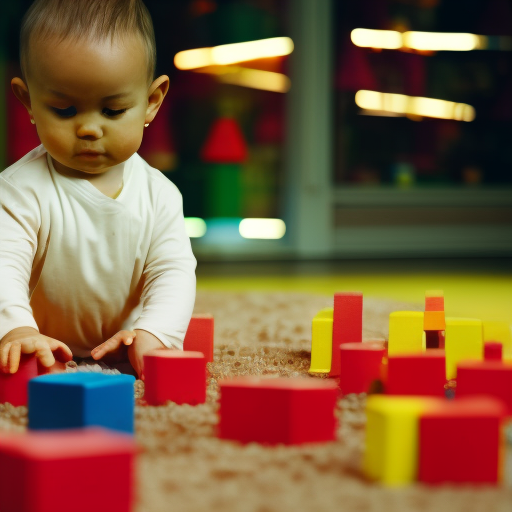"Cherishing Little Steps - A Haven for Baby and Family Journeys"
Behavioral Milestones in Toddlers
As a parent, you witness your toddler’s growth and development on a daily basis. From their first steps to their expanding vocabulary, each milestone brings a sense of pride and wonder.
But have you ever wondered what other behavioral milestones your child may reach? Well, get ready to uncover the fascinating world of a toddler’s development.
From physical milestones to social and emotional growth, this discussion will provide you with a comprehensive understanding of the remarkable journey your little one is embarking on.
So, get ready to explore the captivating realm of your toddler’s behavioral milestones and discover the incredible progress they are making in various aspects of their lives.
Key Takeaways
- Toddlers experience rapid physical growth, including height and weight, as well as the development of muscles, bones, and motor skills.
- Language and communication skills improve rapidly, with toddlers acquiring new words, forming sentences, and developing effective communication skills.
- Cognitive skills, such as memory, play a crucial role in language development and problem-solving, with toddlers showing an increase in memory capacity and duration.
- Social and emotional development is important during the toddler years, with the formation of attachments, recognition of emotions, and the development of empathy and understanding.
Physical Development

Physical development in toddlers is characterized by significant growth and the mastery of various motor skills. During this stage, toddlers experience rapid growth in height and weight, as well as the development of their muscles and bones. This growth is accompanied by the improvement of both gross motor skills and fine motor skills.
Gross motor skills refer to the ability to use large muscles to perform activities such as crawling, walking, and running. As toddlers develop, they gradually gain control over these movements, allowing them to explore their environment and interact with others more actively. They become more coordinated and can engage in activities that require balance, such as jumping and climbing.
At the same time, toddlers also refine their fine motor skills, which involve the coordination of small muscles in the hands and fingers. They learn to manipulate objects, such as picking up and manipulating small toys or feeding themselves with a spoon. These skills are crucial for their independence and self-care.
It is important to provide opportunities and a safe environment for toddlers to practice and develop both their gross motor skills and fine motor skills. Engaging in activities such as playing with balls, building blocks, or drawing can help support their physical development and overall growth.
Language and Communication

As your toddler continues to grow and develop, their language and communication skills become increasingly important milestones to observe. Language acquisition and speech development are crucial aspects of your child’s overall development, providing them with the tools to express their needs, thoughts, and emotions.
Here are some key points to consider:
-
Vocabulary Expansion: Your toddler will begin to acquire new words rapidly, building their vocabulary and understanding of language. They may start with simple words and gradually progress to more complex phrases and sentences.
-
Sentence Formation: You’ll notice your child’s ability to construct sentences improving over time. Initially, they may use short, simple sentences, but as they develop, their sentences will become longer and more grammatically correct.
-
Communication Skills: Your toddler will learn how to effectively communicate their desires and needs. They’ll begin to understand the importance of turn-taking during conversations and may even engage in simple storytelling.
-
Non-Verbal Communication: Alongside speech, non-verbal cues such as gestures, facial expressions, and body language play a significant role in communication. Your child will become more proficient in interpreting and using these cues to express themselves.
It’s important to remember that every child develops at their own pace. Encouraging language and communication development through reading, talking, and engaging in conversations with your toddler can greatly support their progress.
Cognitive Skills
Cognitive development in toddlers is a fundamental aspect of their overall growth and encompasses their ability to think, reason, problem-solve, and learn. During this stage, toddlers experience significant cognitive growth, which lays the foundation for their future learning and development.
One of the key cognitive skills that toddlers develop is their memory skills. Memory skills play a vital role in a toddler’s cognitive development. At around 18 months, toddlers start to develop their working memory, which allows them to hold and manipulate information in their mind. They can remember simple instructions, recall events, and recognize familiar objects or people. As they grow older, their memory capacity and duration increase, enabling them to remember more complex information for longer periods.
Furthermore, memory skills also support other cognitive processes, such as language development and problem-solving. For example, toddlers use their memory to recall words and their meanings, which aids in expanding their vocabulary. Memory skills also help toddlers solve problems by recalling previously learned strategies and applying them to new situations.
To support and enhance a toddler’s memory skills, engaging activities that involve repetition and visualization can be beneficial. These activities can include reading books, singing songs, playing memory games, and engaging in imaginative play. By providing opportunities for toddlers to exercise their memory skills, parents and caregivers can contribute to their cognitive development and overall growth.
Social and Emotional Development

Social and emotional development in toddlers is a critical aspect of their overall growth and involves the development of their interpersonal skills and emotional regulation. During this stage, toddlers begin to form strong attachments and bonds with their primary caregivers, which provide them with a sense of security and trust. This attachment and bonding process is crucial for their emotional well-being and lays the foundation for their future relationships.
Empathy and understanding emotions also play a significant role in a toddler’s social and emotional development. As toddlers grow, they start to recognize and identify different emotions in themselves and others. They learn to respond to these emotions appropriately, showing empathy and understanding towards others. This ability to understand and share the feelings of others helps toddlers to establish positive relationships and navigate social interactions effectively.
To support healthy social and emotional development in toddlers, it’s essential to provide them with a nurturing and responsive environment. Encouraging positive social interactions, modeling empathy, and providing opportunities for emotional expression and regulation are all crucial in fostering their social and emotional growth.
Self-help and Independence

To foster self-help and independence in toddlers, encourage their autonomy and provide opportunities for them to practice and develop essential life skills.
Toilet training and dressing skills are two key areas where toddlers can begin to assert their independence.
Toilet training is a major milestone in a toddler’s life. It’s important to create a positive and supportive environment for this process. Encourage your toddler to express their needs and gradually teach them how to use the toilet. Remember to be patient and understanding, as accidents are a normal part of the learning process. Celebrate their successes and offer gentle guidance when accidents occur.
Dressing skills also play a significant role in fostering independence. Allow your toddler to choose their own clothes and give them the opportunity to dress themselves. Start by providing simple clothing options and gradually introduce more complex items, such as buttons and zippers. Encourage them to practice and offer assistance when needed. This will help build their confidence and develop their fine motor skills.
Play and Imaginative Skills

Developing play and imaginative skills is an important aspect of a toddler’s cognitive and social development. Pretend play allows toddlers to explore their creativity and engage in imaginative scenarios, which helps enhance their cognitive abilities and problem-solving skills. It also promotes social interaction and empathy as they learn to take turns, share, and communicate with others during play.
Here are four key benefits of pretend play for toddlers:
-
Enhanced cognitive development: Pretend play encourages toddlers to think critically, use their imagination, and solve problems. It promotes the development of language skills, memory, and logical thinking.
-
Improved social skills: Through pretend play, toddlers learn to interact with others, negotiate roles, and take on different perspectives. It fosters empathy, cooperation, and communication skills.
-
Emotional development: Pretend play allows toddlers to express and regulate their emotions in a safe and controlled environment. They can explore different situations and feelings, which helps them develop emotional intelligence.
-
Creativity and flexible thinking: Engaging in pretend play stimulates toddlers’ creativity and flexible thinking. It encourages them to think outside the box, come up with new ideas, and explore different possibilities.
Encouraging and actively participating in pretend play with your toddler can support their overall development and provide them with a strong foundation for future learning.
Problem-solving and Decision-making

When engaging in pretend play, toddlers not only enhance their cognitive and social skills, but they also develop important problem-solving and decision-making abilities. This stage of development is crucial for the acquisition of problem-solving techniques and critical thinking skills.
During pretend play, toddlers often encounter obstacles or challenges that require them to think creatively and find solutions. For example, if a toddler is playing with blocks and wants to build a tall tower, they may face the problem of the blocks toppling over. In order to overcome this challenge, the toddler may experiment with different stacking techniques or use additional support to maintain stability. Through trial and error, they learn which strategies work best and develop problem-solving skills.
Moreover, pretend play provides opportunities for toddlers to make decisions. They may need to decide which role to play in a pretend scenario or which props to use. These decision-making experiences allow toddlers to practice weighing options, considering consequences, and making choices based on their preferences or goals.
Frequently Asked Questions
How Can I Encourage My Toddler to Be More Independent in Their Self-Help Skills?
You can encourage your toddler to be more independent in their self-help skills by providing opportunities for them to practice, offering praise and support, and setting realistic expectations.
What Are Some Creative Play Ideas to Help Promote My Toddler’s Imaginative Skills?
To nurture your toddler’s creativity, try these imaginative play ideas: set up a pretend kitchen, create a dress-up corner, build forts with blankets, encourage storytelling, and provide open-ended art materials. Let their imagination soar!
How Can I Support My Toddler’s Problem-Solving and Decision-Making Abilities?
You can support your toddler’s problem-solving and decision-making abilities by providing opportunities for independent exploration, offering choices within limits, and encouraging them to think critically and problem solve on their own.
Are There Any Specific Milestones for Social and Emotional Development That I Should Be Aware Of?
You should be aware of specific milestones for social and emotional development in toddlers. Promote language and communication development by engaging in meaningful conversations and providing opportunities for pretend play.
What Are Some Strategies for Promoting Language and Communication Development in Toddlers?
To promote language and communication development in toddlers, try these strategies: talk to them frequently, read books together, sing songs, and encourage them to imitate sounds and words. Early language intervention is crucial for their overall development.
Conclusion
As you watch your toddler grow and explore the world around them, you can witness the amazing journey of their development. From their first steps to their expanding vocabulary, each milestone is a step towards independence and understanding.
Their curiosity and imagination fuel their play, while problem-solving skills blossom. With each milestone reached, your little one is becoming more capable and self-reliant, ready to take on the challenges that lie ahead.
Embrace these moments and marvel at the incredible progress your toddler continues to make.


